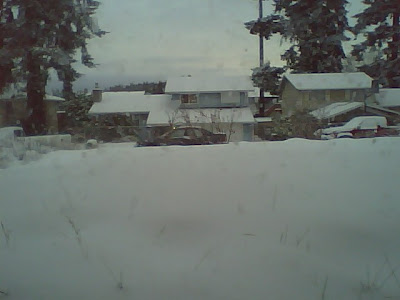
On the other side of the dateline tomorrow is dawning, so they will be getting a head start on this. Whenever your December 31 midnight happens, you will be prepared and won't stand around wondering what to do and why they play that silly song every year. We did Tradition on Manic Monday and this is a tradition, so you might as well do it right.
First make arrangements for a darkhaired someone to knock on your door at 12:01 A.M. A custom known as "first footing" dictates that the first person to cross a home's threshold after midnight on New Year's Eve will determine the homeowner's luck for the new year. The ideal visitor bears gifts—preferably whiskey, coal for the fire, small cakes, or a coin. Why dark-haired? The answer hearkens back to the 8th century, when the presumably fair-haired Vikings invaded Scotland: a blond visitor was not a good omen. It is permissable for someone to leave the party before midnight and then reenter at 12:01, but they can't leave and re-enter after midnight has already passed.
Now for the other guests:
Form a circle with all your guests, friends, and relatives. Cross your hands in front of you and then join hands with the people on each side. This will force you in close shoulder to shoulder as you move in the circle while singing. Full lyrics provided below as well as the translation of Scottish terms so that you will know what you are singing.
Usually in a group, only the first and last verses are sung though the recording above is the full song. Sing out because this is all followed by lots of hugging, kissing, drinking and dancing which is about the best way to say farewell to the old year and welcome to the new after taking the time to remember those now gone or from whom you are separated but love still. Here are all the original lyrics and a translation from the Scots so that you will know what you are singing.
Auld Lang Syne
Should auld acquaintance be forgot,
And never brought to mind?
Should auld acquaintance be forgot,
And auld lang syne!
Chorus:
For auld lang syne, my jo,
For auld lang syne,
We'll tak a cup o' kindness yet
For auld lang syne.
And surely you'll be your pint stoup,
And surely I'll be mine,
And we'll tak a cup o' kindness yet
For auld lang syne!
Chorus
We twa hae ran about the braes,
And pou'd the gowans fine,
But we've wander'd monie a weary fit
Sin' auld lang syne.
Gowans
Chorus
We twa hae paidl'd in the burn
Frae morning sun til dine,
But seas between us braid hae roar'd
Sin' auld lang syne.

Burn
Chorus
And there's a hand, my trusty fiere,
And gie's a hand o' thine,
And we'll tak a right gude willie waught
For auld lang syne!
Chorus
Meaning of unusual words:
jo = dear
ye'll...stowp = you'll pay for your pint measure (of drink)
twa = two
braes = hills or hillsides
pou'd = pulled or plucked
gowans = daises
mony = many
fitt = foot or step
paidl'd = paddled or waded
burn = brook or stream
dine = dinner time or noon
braid = broad
fiere = friend
gie's = give us
guid willie-waught = goodwill drink
Here is the "translation" into modern English. There is no doubt that Burns did it better!
Days Long Ago
Should old acquaintances be forgotten
And never be remembered?
Should old acquaintances be forgotten
and days long ago?
Chorus:
For days long ago, my dear,
For days long ago
We'll drink a cup of kindness yet
For days long ago!
And surely you'll have your pint tankard
And surely I'll have mine.
And we'll drink a cup of kindness yet
For days long ago.
Chorus
We two have run about the hills
And pulled the daisies fine
But we've wandered many a weary mile
Since the days long ago.
Chorus
We two have paddled in the stream
From morning sun till dinner-time
But the broad seas have roared between us
Since the days long ago.
Chorus
And here's my hand, my trusty friend,
And give me your hand too,
And we will take an excellent good-will drink
For the days of long ago.
















































